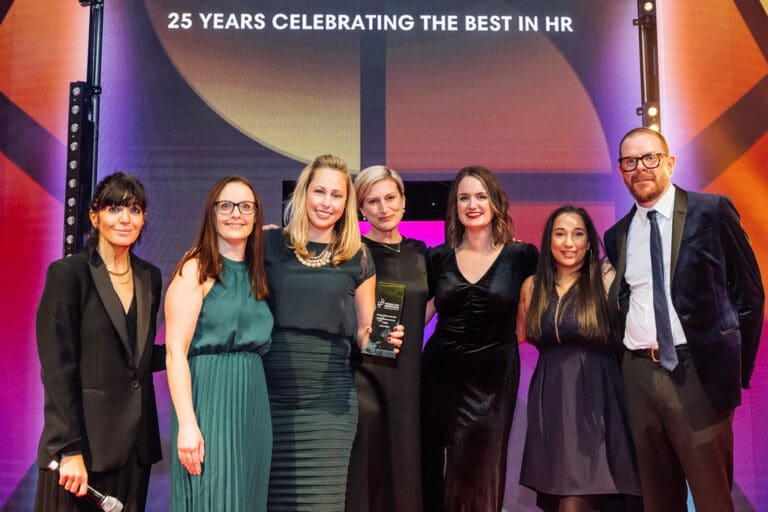If you’ve ever developed an employer brand, you’ll know that it takes commitment and a lot of resource.
You need to fully understand your business, your purpose and your point of difference as an employer.
Research is undertaken; EVPs (Employer Value Propositions) and core messages are created; target audiences are identified; the creative execution takes place and recruitment marketing assets are often created.
Your employer brand then needs to be implemented. We refer to this as the Activation stage of an employer brand.
How well this is implemented is hugely important – candidate experience and candidate engagement will be compromised when it is not done well.
Yet too often in our experience – and backed up by the results of our recent research – not enough time is spent on planning this phase.
We believe that an employer brand it is more than the creative articulation of your core offering as an employer: it’s the messaging; it’s about how someone is made to feel when they engage with your business; it’s about the behaviours of employees that a candidate comes into contact with; it’s every single piece of communication and experience that someone has from the very first engagement with your business.
Candidates have online consumer-grade expectations so a high level of ‘service’ is needed for them to rate your candidate experience as a good one.
External research tells us that a great candidate experience can be critical to improving brand advocacy, reducing renege rates and positively influencing factors such as the diversity of your talent pipeline.
IBM’s research – The Far Reaching Impact of Candidate Experience – tells us that applicants who are satisfied with their candidate experience are more than twice as likely to recommend the hiring organisation to others, compared with those who were not satisfied.
People who are satisfied with their candidate experiences are 38% more likely to accept a job offer.
And 80% of candidates will choose one job offer over another based on the relationships they formed as part of the recruitment journey.
Working in partnership, White Label Recruitment Marketing and Meet & Engage, undertook some research among a wide range of Resourcing teams and discovered that:
- 40% of respondents felt the experience they gave candidates was only Fair or Poor. Just 12% rated the candidate experience offered by their own organisations as ‘Excellent’
- 26% track and/or measure the candidate experience offered to potential new hires. Almost all of this was reported as being conducted via online surveys with several organisations stating that they aim to get feedback from candidates that have dropped out of the process as well as the successful ones
- 45% of respondents believed that their technology solutions support the candidate experience
- 50% of survey respondents felt that the current online media landscape supports the candidate experience with the other 50% believing that it inhibits.
As specialists in talent attraction and employer communications – particularly in the digital and media fields – White Label are supporting more and more organisations to navigate the complicated online media landscape and help them avoid the pitfalls which lead to a poor candidate experience.
Digital media is going through a major shift and is becoming confusing to many.
The move to Pay for Performance is growing and digital media options have the ability to be highly trackable if you know what you’re doing.
But they also have the ability to work against your candidate experience if they are not understood and used effectively.
We’re in the age of peer review.
There will be conversations and reviews taking place about you as an employer whether you are part of those communications or not.
Candidates have online consumer-grade expectations so a high level of ‘service’ is needed for them to rate your candidate experience as a good one.
What about activating your employer brand during the candidate journey – what effect does that have?
Firstly, it gives your candidates a seamless journey.
It ensures candidates don’t fall off an expectations cliff when they apply.
Not many would disagree that consistency when it comes to brand helps.
And the transparency of today’s media landscape – from Glassdoor to Twitter – means there are very few – if any – places to hide from the noise if you give a poor experience to consumers or candidates.
Graeme Johnson, previously of Virgin Media and then BT, famously put an estimated cost of poor candidate experience to the business’ bottom line as several million pounds.
Secondly, believability and authenticity.
If you’re being true to the brand, you won’t be caught out. It doesn’t mean your brand needs to be vanilla and right for everyone, but you’ll enjoy increased levels of trust when you’re authentic.
There’s no doubt that activating your employer brand throughout the recruitment journey will result in a better candidate fit.
And surely this comes back to one of the key reasons we articulate our employer brand in the first place.
It’s why the right person joins, stays and flourishes with your organisation.
If that becomes confusing – or worse absent – during the candidate journey, we’re missing a huge opportunity to reinforce all the reasons someone should join. What a waste.
There will also be an impact on brand advocacy – whether it’s creating ambassadors, reducing drop-out rates or ensuring the talent you want, choose to join you.
And of, course common sense dictates that there’s a tangible impact on the consumer brand too.
There’s a risk that being treated poorly during the candidate experience could well influence your behaviour as a customer – particularly in the fast-moving sectors of retail and FMCG for example.
You’ll remember Graeme Johnson, previously of Virgin Media and then BT, famously put an estimated cost of poor candidate experience to the business’ bottom line as several million pounds.
That’s in lost brand advocacy, new customer contracts, and contract renewals.
So, if logic suggests continuing to activate your employer brand throughout the candidate journey is a good thing, what else did our research tell us about our audiences’ current candidate experience.
We can see there’s certainly a recognition of some room for improvement – but encouragingly some really strong statements of intent to focus on candidate experience as a key part of the employer brand activation.
- Only 21% of recruiters had an objective or target in place related to candidate experience. If the net £cost of poor candidate experience is in the £millions in some cases, then why isn’t this a measure? It could be costing more than your agency spend or time to hire – which are often KPIs for recruiters
- 45% admitted candidate experience depended on the level of hire – and unsurprisingly, there was a direct correlation between seniority of hire and quality of candidate experience. If in some cases, our candidates are also our consumers – take a retailer or telco for example – aren’t our volume customer service hires just as (if not more) important to our bottom line than our one senior hire? I realise the nuances of candidate availability at a senior/specialist level make this a more complicated discussion, but you get the point
- And there was a notable gap in the priority placed on positive candidate experience between the HR community and the Exec Board in the organisations we surveyed. For some organisations there was a real disparity, suggesting HR are fighting a losing battle to be heard on this front. Finding a way to articulate the value of positive candidate experience – or the cost of poor candidate experience – to the organisation is key to getting buy-in at Board level.
So, how can you ensure your employer brand is activated throughout the candidate journey?
For those who don’t know us well, we’re Meet & Engage – candidate engagement technology powered by live chat and personalised content. Our technology allows our clients to engage, inform and empower candidates throughout the recruitment journey.
By joining group or 1-2-1 chat sessions on our platform clients can give a higher level of insight into their organisation, culture and much more, to ensure the employer brand activation doesn’t stop once someone’s applied.
As well as having a passionate belief in the importance of a positive candidate experience, we also get to see the real-time effects of getting it right.
So, what have we learned from our clients?
- Get the balance of automation and personalisation right: In our view, recruitment is a relationship – not a process. HR Tech – including Meet & Engage – is there to enhance the human touch – not replace it entirely.
This can also produce great results when it comes to empowering candidates to be their best.
Take the MET Police: they use our technology to invite candidates from under-represented groups to attend chat sessions to share insight on key elements of the police officer recruitment process – for example, the fitness test and assessment centre – all points at which data was showing our key audiences were most likely to drop out.
The outcome? Candidates who attend a chat session before the assessment centre are up to 20% more likely to pass than those who don’t.
Informing and empowering candidates works.
- Lift the lid on your organisation: it’s clear from the sessions we see our clients running and the feedback from their target audiences that candidates want the inside track. They want to hear from their future colleagues – your current employees – and get the real gen on the organisation. What’s the work-life balance really like? What’s the culture and ethos like? All the things that bring your brand to life with authenticity and humanity. The gloss of the corporate comms is one thing; the peer-to-peer insights is quite another. And we know from Edelman’s Trust Barometer, we trust ‘people like us’ far more than corporate brands
- Who’s representing you and how? If meeting your employees is the desired way to get the measure of your brand and culture, are the right people representing you? Are you ticking a box to get at least someone to man your careers stand on-campus, or have you chosen the brand advocates who’ll give an honest and insightful account of what’s it’s like to be your employees. Successful employer brand activation requires the latter
- And finally, create content: Bill Boorman said in a recent webinar that live chat and conversation are your new employer brand content. Rather than pre-vetted profiles on your careers site, let the content be created by your candidates and employees sharing questions and insights.
I’ll leave you with a quote which for me sums up the importance of activating your employer brand beyond attraction and throughout the recruitment journey. Simon Rutter, Global Employer Brand Director:
“Poor candidate experience can do irreversible damage to your employer brand. Candidates are consumers, they have networks and they have channels. If you provide a poor experience they will not buy from you or consider a role with you again. And they will tell their friends and family, so the potential impact on lost revenue, talent and brand equity is incalculable”.
We couldn’t agree more.






